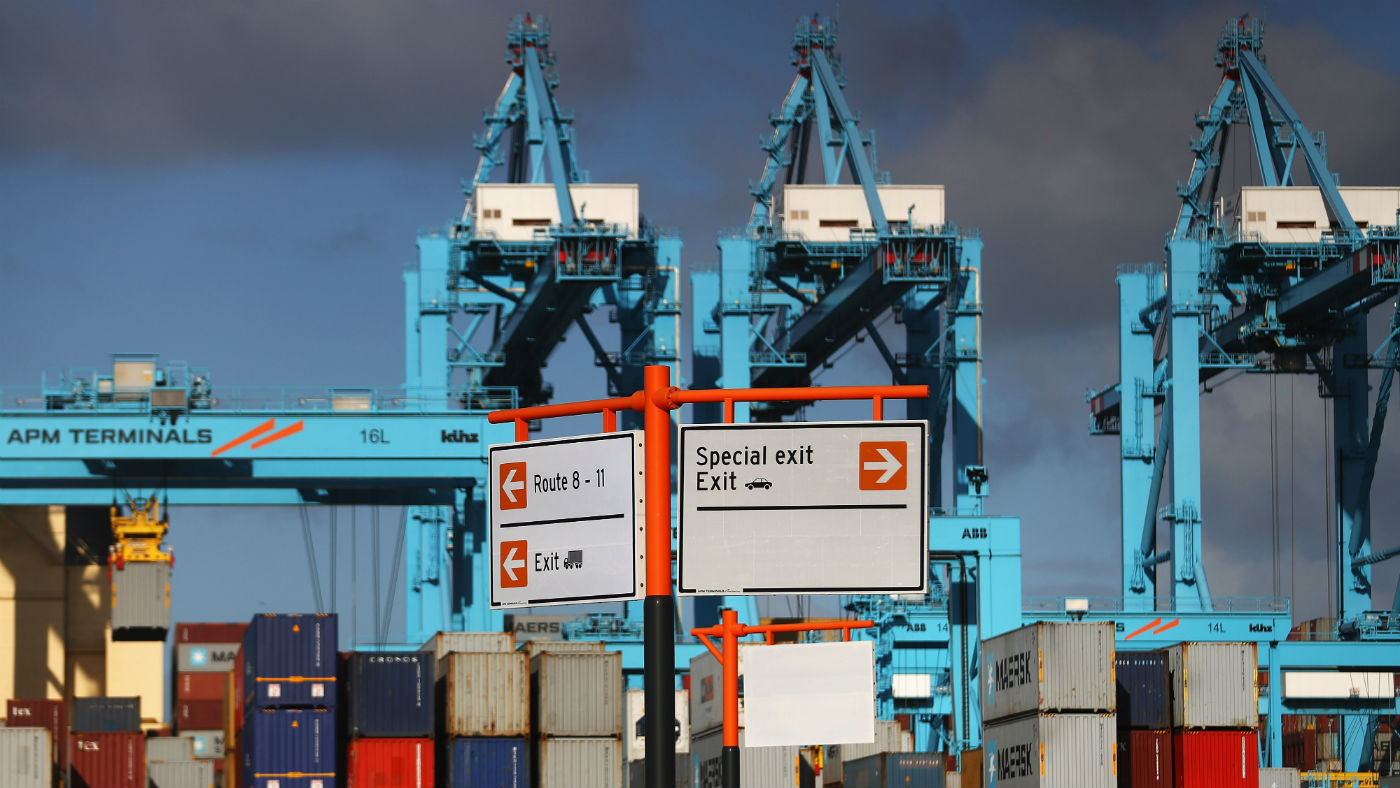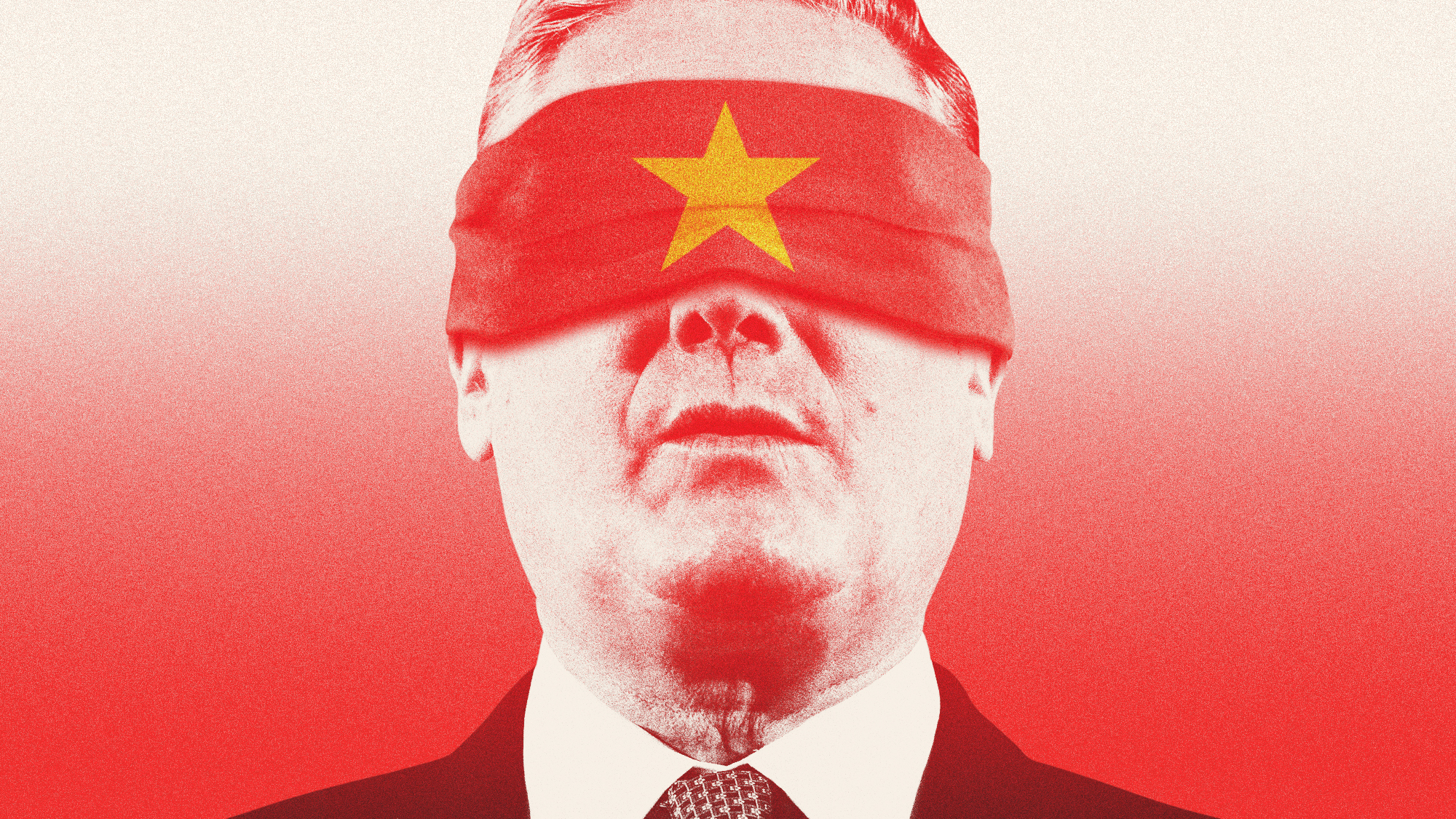Brexit: why is the government favouring goods over services?
Business leaders write to PM urging her to protect professional services after Brexit

A free daily email with the biggest news stories of the day – and the best features from TheWeek.com
You are now subscribed
Your newsletter sign-up was successful
Senior business leaders have pleaded with the prime minister to protect Britain’s vital professional services sector, amid suggestions the government is prioritising goods over services in the Brexit negotiations.
A letter signed by 42 members of the Professional and Business Services Council (PBSC), which represents the law, audit, consultancy, advertising and architecture sectors, warned Theresa May that failing to negotiate the right Brexit deal could damage a £188bn industry that employs 4.6 million people and “keeps the wheels of the British economy turning”.
The letter called for mutual recognition of qualifications, products, court judgments and operating licences between the UK and EU as well as a guarantee for the rights of professional workers to travel and hire in the bloc.
The Week
Escape your echo chamber. Get the facts behind the news, plus analysis from multiple perspectives.

Sign up for The Week's Free Newsletters
From our morning news briefing to a weekly Good News Newsletter, get the best of The Week delivered directly to your inbox.
From our morning news briefing to a weekly Good News Newsletter, get the best of The Week delivered directly to your inbox.
It follows a similar warning from the British Chambers of Commerce, which published a list of 23 “real-world” questions that it says urgently need answering, including whether firms will be able to transfer staff between the UK and the EU as they do now.
Services account for about 80% of the UK economy, and the UK sells more services to the EU than it buys, but “to date, negotiations have focused on the frictionless movement of goods between the UK and the EU” says the BBC.
Last week, Business Secretary Greg Clark echoed business concerns by insisting services must be part of any Brexit deal with the EU. He said the £90bn of services exported to the EU in 2016 amounts to “more than to our next eight largest partners - the United States, Switzerland, Japan, Australia, Canada, China, Singapore and Norway - combined”.
The government’s latest proposal for a customs union deal, which would effectively keep the UK in the single market for goods but not for services, was rejected last week by the Irish Taoiseach Leo Varadkar as “unrealistic”. He said it would lead Eurosceptic parties across Europe demanding the same sort of deal.
A free daily email with the biggest news stories of the day – and the best features from TheWeek.com
Henry Newman, the director of the Open Europe think tank, said his organisation’s blueprint for a future trade agreement with the EU “recognises that the UK is too big an economy to be a rule-taker in areas like financial services, while accepting that we can get a very good degree of access in goods by giving up a limited amount of control.”
The Open Europe report, dubbed “Striking a Balance”, found an unlikely ally in former Tory chancellor Lord Lamont, who backed the idea that Britain should defer to the EU on goods because the UK’s “proportion of trade with Europe is higher than that of our services”.
-
 6 of the world’s most accessible destinations
6 of the world’s most accessible destinationsThe Week Recommends Experience all of Berlin, Singapore and Sydney
-
 How the FCC’s ‘equal time’ rule works
How the FCC’s ‘equal time’ rule worksIn the Spotlight The law is at the heart of the Colbert-CBS conflict
-
 What is the endgame in the DHS shutdown?
What is the endgame in the DHS shutdown?Today’s Big Question Democrats want to rein in ICE’s immigration crackdown
-
 How corrupt is the UK?
How corrupt is the UK?The Explainer Decline in standards ‘risks becoming a defining feature of our political culture’ as Britain falls to lowest ever score on global index
-
 Can Starmer continue to walk the Trump tightrope?
Can Starmer continue to walk the Trump tightrope?Today's Big Question PM condemns US tariff threat but is less confrontational than some European allies
-
 The high street: Britain’s next political battleground?
The high street: Britain’s next political battleground?In the Spotlight Mass closure of shops and influx of organised crime are fuelling voter anger, and offer an opening for Reform UK
-
 EU-Mercosur mega trade deal: 25 years in the making
EU-Mercosur mega trade deal: 25 years in the makingThe Explainer Despite opposition from France and Ireland among others, the ‘significant’ agreement with the South American bloc is set to finally go ahead
-
 Biggest political break-ups and make-ups of 2025
Biggest political break-ups and make-ups of 2025The Explainer From Trump and Musk to the UK and the EU, Christmas wouldn’t be Christmas without a round-up of the year’s relationship drama
-
 Is Keir Starmer being hoodwinked by China?
Is Keir Starmer being hoodwinked by China?Today's Big Question PM’s attempt to separate politics and security from trade and business is ‘naïve’
-
 ‘The menu’s other highlights smack of the surreal’
‘The menu’s other highlights smack of the surreal’Instant Opinion Opinion, comment and editorials of the day
-
 ‘Autarky and nostalgia aren’t cure-alls’
‘Autarky and nostalgia aren’t cure-alls’Instant Opinion Opinion, comment and editorials of the day